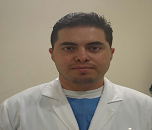
Edgar R. Abascal-Garcia
Intensive Care Unit Hospital, Mexico
Title: Early use of continuous renal support therapy in HELLP syndrome
Biography
Biography: Edgar R. Abascal-Garcia
Abstract
Case: A 29 years old obese and diabetic pregnant woman (29 weeks of gestation) presented to the emergency room with 200/120 of blood pressure nonresponsive to oral medication nor sulfate magnesium infusion. Laboratories and other vasospasm manifestations confirmed an overt HELLP syndrome. She underwent an emergency C-section and was admitted into the Intensive Care unit (ICU) afterwards. She was started on intravenous Labetalol and mechanical ventilation due to respiratory failure. She evolved with oliguria (KDIGO Stage 1) despite of a fluid accumulation of 6% in a 6-hour period. Despite hemodynamic stability was achieved and renal biomarkers being unaltered, continuous renal replacement therapy (CRRT) was initiated in a full convection modality. Clinical and biochemical normalization occurred after 48 hours and mechanical ventilation was withdrawn. She was disconnected from renal support 24 hours after extubation, and discharged from the ICU 72 hours after the admission. Urinary flow remained adequate during the whole ICU stay. She and her baby were discharged healthy to home.
Discussion: Proinflammatory Cytokines damaging the endothelium is part of the still not fully understood HELLP syndrome pathogenesis. These cytokines (IL-2, TNF) have a molecular weight compatible with convection clearance. CRRT has been used without severe kidney injury in Acute Respiratory Distress Syndrome, pancreatitis and other syndromes with good outcomes. The early use of CRRT might have accelerated patient´s recovery.
Conclusion: CRRT exhibited benefit in a case of HELLP syndrome with KDIGO stage I AKI. This pathology should be explored as a non-renal indication for CRRT.

